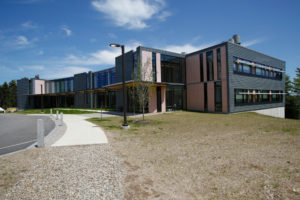This month the federal Biomass Research and Development (BR&D) Board unveiled a multi-agency strategy to accelerate innovative biomass technologies for affordable biofuels, bioproducts, and biopower. Algae cultivation is prominently featured among the suite of technologies the effort is harnessing.
The B&RD Board is an interagency collaborative which is co-chaired by the U.S. Department of Agriculture (USDA) and the U.S. Department of Energy (DOE). The new strategy document lays out a plan to address challenges in technology uncertainty; leverage government, academic, and industrial resources and capabilities; stimulate public-private partnerships; and generate new and useful technical information.
The report identifies a number of areas specific to algae that can be addressed with improved R&D efforts, including:
- Growing and harvesting highly productive algae at large scale
- Fractionation and conversion of algae into fuels and products
- Addressing the resources needed for the distribution and utilization of a national algal industry
- Analytical assessments that can provide information on the improved sustainability profile of algae-based products
View the full report here (PDF).
ABO members are working closely with the new interagency group to ensure that they are able to coordinate with the industry’s leading research and commercialization efforts.

 Advanced algae production is driving a wave of change, and is creating new opportunities around the world. From a
Advanced algae production is driving a wave of change, and is creating new opportunities around the world. From a  Bigelow Laboratory for Ocean Sciences is a world-renowned oceanographic research institution that has materially contributed to what is known about the global ocean for the past four decades. Bigelow currently provides academic, industrial, and government partners with the same services used by its scientists, to help advance research, enhance discoveries, and find solutions to today’s complex problems. The Lab has six
Bigelow Laboratory for Ocean Sciences is a world-renowned oceanographic research institution that has materially contributed to what is known about the global ocean for the past four decades. Bigelow currently provides academic, industrial, and government partners with the same services used by its scientists, to help advance research, enhance discoveries, and find solutions to today’s complex problems. The Lab has six 